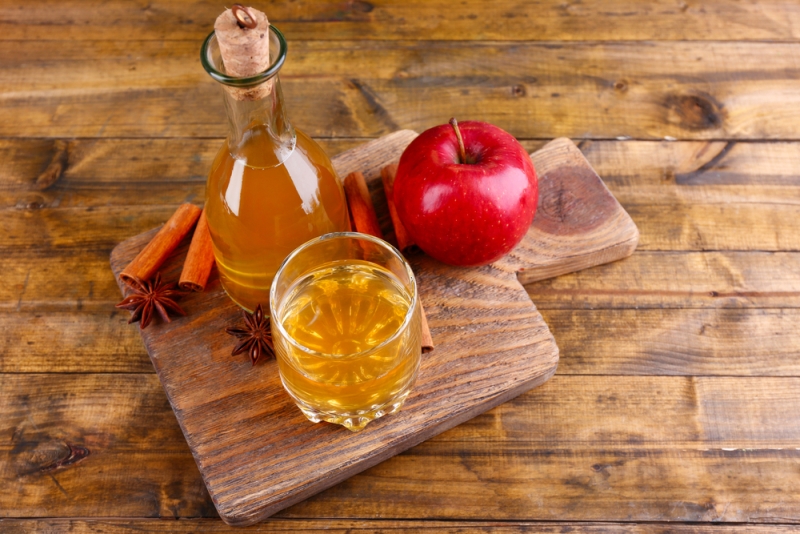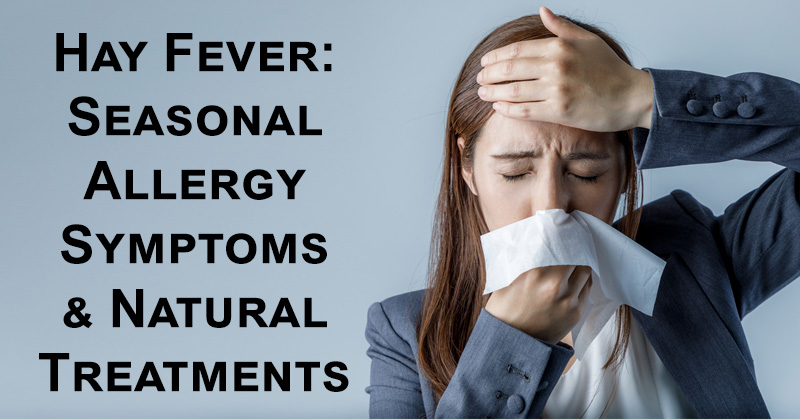If the smell of spring in the air, the sight of flowers blooming, the sound of birds chirping makes you groan, there’s a good chance you’re one of the 50 million Americans who suffer from seasonal allergies. Allergic rhinitis or hay fever can also occur in the fall and summer months. Seasonal allergy symptoms can include congestion, sneezing, runny nose, watery eyes and post-nasal drop, among others. Research shows that about 1/3 of ragweed allergy sufferers are also allergic to certain foods, including melons, zucchini, sunflower seeds, bananas and chamomile tea. In an effort to reduce symptoms, many allergy sufferers reach for over-the-counter and prescription allergy medications, but there is another way to keep allergy symptoms under control. Natural treatments can help strengthen the immune system and improve the body’s defense against frustrating allergy symptoms, without causing unwanted side effects.
Seasonal Allergy Symptoms
- Congestion
- Post-nasal drip
- Excess mucus production
- Sneezing
- Runny nose
- Itchy, watery eyes
- Scratchy throat
- Tickle/irritation in the ears
- Decreased concentration and focus
- Decreased decision-making
- Exhaustion and sleep disorders
- Mood swings
- Irritability
- Low blood pressure
- Asthma
- Hives
- Eczema
- Middle ear infection

Seasonal Allergy Natural Treatments
1. Foods to Avoid
Diet can play an important role when it comes to managing food allergy and seasonal allergy symptoms. An elimination diet can help you identify foods that you are allergic or sensitive too. If you suffer from a ragweed allergy, you may want to avoid bananas, melons, cucumbers, sunflower seeds, chamomile and echinacea. Other foods that may worsen hay fever symptoms include:
- Alcohol
- Caffeine
- Dairy
- Chocolate
- Peanuts
- Sugar
- Wheat
- Chocolate
- Gluten
2. Foods to Eat
Eliminating certain foods from your diet can help reduce seasonal allergy symptoms. Adding certain foods to your diet can do the same. If you suffer from hay fever, it’s important to consume plenty of anti-inflammatory foods that will help strengthen your immune system and improve your body’s response to allergy triggers. At the top of the list of foods that are beneficial for hay fever lies raw honey. Raw honey is packed with nutrients, including antioxidants, that boost the immune system and help relieve seasonal allergy symptoms. If you’re suffering from congestion caused by allergies or a sinus infection, try adding spicy foods to your diet. Spicy foods like ginger, cinnamon, garlic and cayenne pepper can help thin out mucus. Fresh, oganic vegetables like cabbage, beets, carrots and Swiss chard also help the body fight off seasonal allergy symptoms. Foods that can help fight symptoms of hay fever include:
- Raw local honey (1)
- Hot and spicy foods
- Bone broth
- Probiotic-rich foods
- Pineapple
- Apple cider vinegar
- Fresh organic vegetables
- Grass-fed meats
- Free-range poultry
- Wild-caught fish

3. Supplements for Seasonal Allergy Symptoms
Certain vitamins, minerals and other supplements can help the body fight off seasonal allergy symptoms. Research has shown that spirulina in particular can help stop the release of histamine that leads to hay fever symptoms. Quercetin, found in many fruits and vegetables, can also help stop the production and release of histamine. Allergy and asthma natural remedies include:
4. Essential Oils for Seasonal Allergy Symptoms
Certain essential oils can also help reduce seasonal allergy symptoms. Try peppermint, eucalyptus and lavender oil to help clear the nasal passages, open up the lungs and reduce stress. Add several drops of oil to a Neti pot and breathe in the vapors to help relieve congestion cause by hay fever or the common cold. You can also try a homemade vapor rub made with essential oils to help combat seasonal allergy symptoms.


